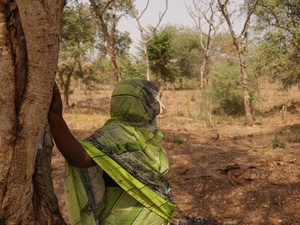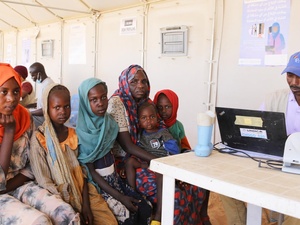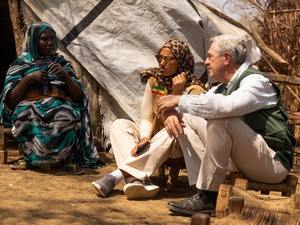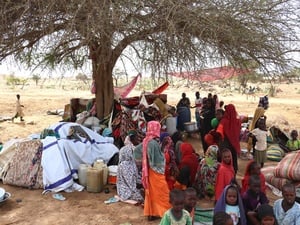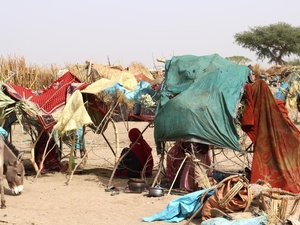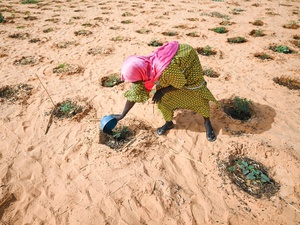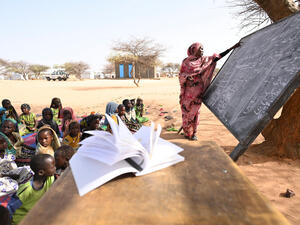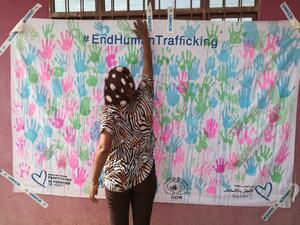Chad: Joint emergency assistance for 103 abducted children in Abéché: by ICRC, UNHCR and UNICEF
Chad: Joint emergency assistance for 103 abducted children in Abéché: by ICRC, UNHCR and UNICEF
ABECHE, 1 November - Recent events in Abéché, eastern Chad, leading to the arrest of some members of an NGO called 'Children Rescue/Arche de Zoe', have kept staff and partners of the International Red Cross Committee (ICRC), the UN High Commissioner for Refugees (UNHCR) and UNICEF busy since 25 October as they do their utmost to respond to the urgent needs of the 103 abducted children currently being looked after in Abéché's orphanage.
The unusual circumstances surrounding the children's arrival in Abéché, required rapid action to ensure the protection of the children including the immediate provision of adequate shelter and other items. Considering the young age of most of the children and their needs, the three agencies and their partners - including volunteers of the Chadian Red Cross - committed themselves to help the Chadian authorities by providing food, mattresses, blankets, soap, clothes, toys, hygiene articles and medicines amongst other supplies.
With the best interests of the children as their main focus, the three agencies started to gather information on the identity, age and places of origin of the children. They interviewed the children individually and listened to their stories carefully to gain preliminary information on their family backgrounds. This initial data will help trace the children's parents or relatives in order to reunify each child with his/her family and allow them to continue living a normal childhood.
Among the children there are 21 girls and 82 boys. The youngest is about one year old and the oldest about ten. So far, the interviews carried out with the children - some of whom could not provide any information due to their young age - led to the preliminary conclusion that most probably 85 come from Chadian villages near the cities of Adré and Tine alongside the Chadian-Sudanese border.
During interviews with humanitarian staff, 91 children said they had been living with their family, consisting of at least one adult they considered to be their parent. Interviews with the remaining 12 children are ongoing to gather more information to trace their relatives.
The humanitarian agencies are closely monitoring the well being and health of the children, which for the time being is considered satisfactory. Since their arrival, a few children have been treated for minor injuries.
The joint ICRC, UNHCR, UNICEF team, their partners and the local administrative Chadian authorities, are combining all their efforts to establish a clear picture of the experiences the children had to endure, find out who they are and where they come from in order to find the appropriate solution for each child. The assistance provided to the local authorities is in accordance with the agencies' code of conduct which requires impartiality and non-discrimination.
Collecting information to start tracing the children's families is a painstaking undertaking and particularly challenging considering the number of children, their young age and the prevailing situation in the region. The aim is to collect as much information as possible as quickly as possible, while at the same time stabilising the psychological and emotional state of the children.
The preliminary information collected so far from the children, who are hosted under the responsibility of the Chadian authorities, needs to be first verified in the villages. The information has been shared with the Government. Over the coming weeks, ICRC, UNHCR and UNICEF with the support of their partners, will continue their efforts to find a quick and appropriate solution for each one of the 103 children to allow them to go back home, join their families and live a child's life.


